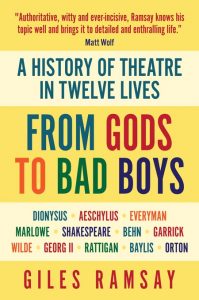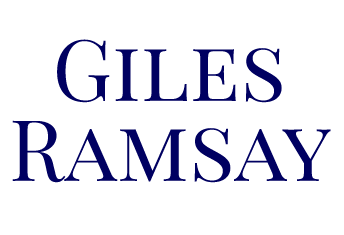Giles Ramsay is Course Leader in Theatre at The Victoria and Albert Museum in London, an accredited Arts Society (formerly NADFAS) lecturer and a former Fellow of St. Chad’s College, Durham University.
Giles Ramsay is Course Leader in Theatre at The Victoria and Albert Museum in London, an accredited Arts Society (formerly NADFAS) lecturer and a former Fellow of St. Chad’s College, Durham University.
He regularly lectures on Cunard’s Queen Mary 2 and Queen Elizabeth and has given numerous talks at institutions ranging from The Foundation for Mexican Literature in Mexico City to The Royal College of Physicians in London. Giles combines academic analysis with hands on experience to bring a unique insight to the world of the theatre.

From Gods to Bad Boys examines the history of theatre from cave paintings to the swinging-sixties through the lives of some of its leading practitioners. Putting plays into their historical context Giles Ramsay rifles through the lives of playwrights such as Aeschylus, Marlowe, Shakespeare, Behn, Wilde, Rattigan and Orton. The worlds they lived in generated the plays they wrote.
Lecture Topics
Click on a lecture title for a short description.
All of the above lectures are presented as full Keynote/Powerpoint presentations with still images and film clips.
Click here for a downloadable pdf Lecture and Full Day Course list.
Full Day Courses

